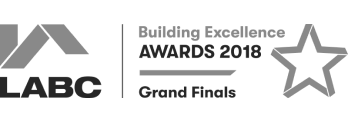As you move through your career and journey forward on your new professional path, you may be wondering how best to develop your skills. Growing your talents, especially in the workplace, is vital for achieving career goals and moving up in your industry.
While these skills may have been easy to nurture in a school or university setting, prompted by the guidance of teachers and clearly outlined assignments, advancing your skillset career-wise requires a more proactive approach.
This is where the term Continuing Professional Development (CPD) comes into play. In this guide, we’ll explore the phrase, discuss its importance, and share some tips and examples of continuing professional development.
By the end of this blog post, you’ll be feeling confident enough to embark on your own research in your unique CPD plan and clearly understand the importance it can play in furthering your career.
What is continuing professional development?
Continuing professional development (CPD) is where you intentionally develop or learn new skills and knowledge in order to advance your professional career.
This could be finessing your current skillset, which landed you the job in the first place, or it may be picking up new talents that will help progress you to the next stage of your career.
Some employers also like their staff to expand on their current role with CPD, using their skills to adapt their title to a new level that is beneficial for both employee and company.
CPD usually comes in the form of training, whether that be in the workplace and organised by your employer, or set up by yourself and carried out in your own free time. The latter may be the case if you are looking to make a career move away from your current industry and require development in different areas to achieve this.
In a workplace setting, you may find that your employer keeps a record of your CPD in the form of a folder or digital portfolio. This way, both you and the company can clearly identify your knowledge advancement and reflect on what this means for your current and future roles.
Why is continuing professional development important?

CPD is important, as it can help you achieve promotions and meet personal career goals. By continuing to grow your skills and knowledge, you are showing your employer that you can take on more responsibility and are passionate about your career.
Working alongside your employer to monitor your CPD can help you both identify when things like salary and job title need to be discussed, as you move out of your current role parameters and advance along the path.
With CPD, you can clearly demonstrate your growing and newfound skills, some of which may be necessary to achieve a pay rise or higher position.
On a more personal level, it may also help you to identify what aspects of your role you do and don’t enjoy, so you can reassess and evaluate whether this career path is right for you or if a change is needed.
Gaps in your knowledge are also highlighted with CPD, allowing you to quickly and easily fill those possible limitations when it comes to advancing your career.
CPD also helps boost your CV and cover letters for potential future jobs and demonstrates your professional standing to employers.
Perhaps most importantly, your CPD portfolio is a wonderful reminder of how far you have come in your professional journey, highlighting your fantastic achievements and encouraging you to continue to strive towards your goals.
Examples of continuing professional development
Many employers often have their own ways of monitoring and encouraging your CPD. Most follow a similar cycle when it comes to identifying potential for skill growth, applying this to the role, and assessing the impact:
- Identify – gaps in your knowledge and make a continuous professional development plan
- Act – carry out training, courses, etc.
- Reflect – on the skills and knowledge acquired
- Apply – the skills to your role
- Share – the skills with the wider team if beneficial and discuss progress with employer
- Impact – assess the impact knowledge is having on the role and its benefits
As part of your CPD plan, your employer may require you to partake in training courses or perhaps shadow higher members of the team to learn the required knowledge.
However, most CPD is employee-led, meaning it is largely up to you to highlight your own skill needs and suggest ways to acquire this. For example, you may have spotted an emerging trend in your industry you feel your company is currently lacking in. Rather than simply identifying the absence to your employer, it’s important to ensure you have clearly researched how to educate yourself in this new knowledge and outline what and how you need your employer to contribute.
On the other hand, you may feel like your leadership skills are lacking – vital if you ever want to make the jump into a managerial position. Perhaps there is a project you can take charge of, or a manager at work you can shadow for the day?
The CPD may be quite informal and have a wider application that is relevant to many roles throughout the progression of your career. Many employers also like to focus on transferrable skills during a team member’s CPD, which can be incredibly useful if you do decide to move into a more varied role.
Ultimately, you will find CPD improves your capabilities and competency in different areas of knowledge and skills related to your role.
Tips for making your continuous professional development plan

- Keep an eye on advancements in your industry, particularly from those individuals or companies you admire, and recognise when something pops up that would be valuable for you to learn.
- Check in with how you are finding your day-to-day work – are you challenged enough? Do you feel comfortable advising or managing other team members? Any areas of doubt could be potentials for skills to be developed.
- Keep a learning log or diary that you write in regularly. For each useful activity or event that you come across in the workplace, note down the situation, what you learned, and what you will do differently as a result. This can be incredibly useful in assessing your progress towards your continuous development goals.
- If you’re really stuck, getting feedback from others is an interesting way to assess what your CPD plan needs to be. Your colleagues and manager may have noticed any skills that you have a potential to develop.
- Don’t overwhelm yourself with unrealistic goals or plans. You are likely to be working on your CPD plan your entire professional career, so there is plenty of time to achieve what you want. Start with identifying what is important right now, perhaps what you need to demonstrate to gain that promotion and go from there.



